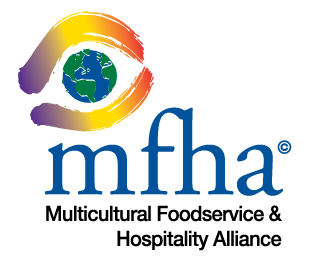Leading With Cultural Intelligence
“A Diversity Perspective on the Coronavirus Crisis”
Growing cases of discrimination, health disparities, and emotional challenges are just a few of the difficulties during COVID-19 leaving operations scrambling to understand how to address these issues. Join us for guided conversations as well as thoughts from diverse community leaders on cultural intelligence with the COMPLIMENTARY virtual roundtable Cultural Intelligence for Restaurant Managers During COVID-19, available on-demand now.
UNPRECEDENTED CRISIS – This crisis is unlike anything the world has ever seen. The impact is being felt across the globe. For industries like lodging, the effect of the Coronavirus crisis is even bigger than September 11th. No one knows what the future holds.
SERVICE ECONOMY HARDEST HIT – The restaurant, foodservice, and lodging industry is the heart of America’s service based economy. They, along with gig economy workers are non-salaried workers, with no paid sick leave, vacation, or healthcare coverage. Most important, wages lost in the service industry can never be recovered.
WORKFORCE IN CRISIS MODE – Much of the hospitality workforce consists of a combination of immigrant, low income, limited education, hourly workers that live paycheck to paycheck. The shutdown of restaurants and hotels is a direct threat to the livelihood of these communities, as families will have to choose between food, rent, utilities, and medicine.
MINORITY BUSINESS OWNERS AT RISK – Much of the hospitality workforce is made up of a combination of immigrant, low income, limited education, hourly workers that live paycheck to paycheck. The shutdown of restaurants and hotels is a direct threat to the livelihood of these communities as families will have to choose between food, rent, utilities, and medicine. Patronize small businesses; buy their gift cards, show support.
WATCH FOR SIGNS OF BIAS AND DISCRIMINATION – Unfortunately, there are individuals and media outlets that have begun to politicize the dialog and blame ethnic groups for causing the pandemic. If left unchecked, these racialized threats could escalate into physical confrontations in stores as people scramble to buy food and supplies.
Psychological studies have proven that during times of increased stress, radical behaviors will result.
OUR PEOPLE ARE MORE IMPORTANT THAN EVER BEFORE – At some point, this crisis will be over and businesses will have to return to a “new normal” just as they did after 9/11. That is why embracing and supporting our workforce now is so important. If we want people to be loyal to our industry, then we have to be loyal to them. We have to show up in their time of need to help them navigate through these uncertain times. The payoff for all of America will be tremendous.
“Things you can do to get through this transition”
Be proactive and reach out to people who might be feeling vulnerable where you live, work, or play. A gesture of kindness, especially during these stressful times, can go a long way to easing tension and frustration. If you have a broken relationship, now might be a good time to ask for or offer forgiveness. It’s been said that “time heals all wounds”. During this stressful time, practicing forgiveness and offering people grace for mistakes of the past is how we practice hospitality. And remember, you don’t always have to provide a solution to their situation. Sometimes, just checking in with them and knowing you are thinking about them is sufficient.
Read about or take anti-bias training to help increase awareness of your blind spots. Everyone has bias. It’s normal and natural. Learn the most common forms of hidden or implicit bias and look to see where and how it plays out in your everyday life. Then, practice taking steps to change your thinking to overcome naturally occurring bias.
Be intentionally inclusive with the words you use when speaking to or directing other people – especially if they are from a different race, ethnicity, gender, religion, or identity from your own. Take care to avoid words that can be perceived as discriminatory, exclusionary, preferential, or judgmental.
Don’t make assumptions about people, circumstances, events, or experiences. When people come to conclusions before they have the facts, they are almost always wrong. If you must assume something about a person or situation, assume good intentions. This approach will help you be more open and will communicate to other people that you have patience and are not judgmental about them or their circumstance.
Don’t take a person’s emotional response personal. During times of job loss and uncertainty, it’s normal for people to react out of fear or anger. A hostile guest, customer, or team member might be worried about something totally unrelated to the conversation or transaction you are currently having. Showing people grace and kindness as your engage with them is a very effective de-escalating tactic.
Don’t believe everything you hear. Much of our anxiety is due to bias thoughts we have about people, places and things. Wild conspiracy theories about political agendas, God’s will, and other bias-based explanations for the virus are divisive and can be discriminatory. Don’t do it! Much of this dialog is based on religious beliefs, or philosophical points of view. Remember, thoughts are not facts. They are just thoughts.
Stop replaying negative themes. Re-thinking negative or anxiety- producing thoughts repeatedly can create even greater anxiety. The same goes for consuming negative and biased news via TV, radio and on social media. Instead focus intentionally on positive themes. Read, listen to, or watch positive media to balance out negative thoughts. Commit to being positive and ask friends and family to help you stay optimistic.
